‘Climate Change should beseen as an opportunity for thebeef industry’
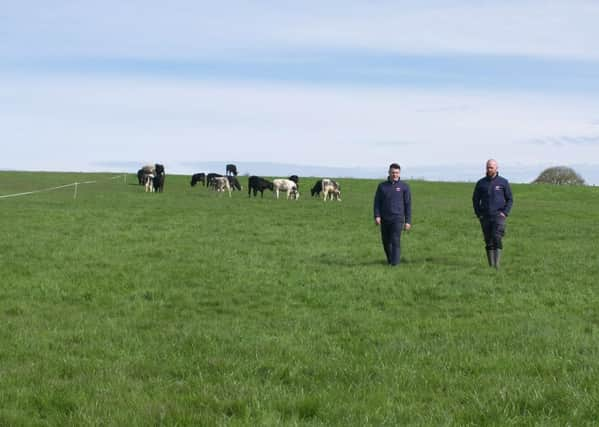

All of this is good news for farmers, as it they who will be at the forefront of the strategies put in place to deliver improved sustainability along the entire length of the beef production, processing and retail chain.
And yes, securing improved sustainability, by definition, must impact on all aspects of a farm’s commitment to securing improved efficiency levels and how each business interacts with the environment around it.
Advertisement
Advertisement
But, fundamentally, it must also act to deliver improved financial stability on local farms. In truth, if this latter objective cannot be achieved in a meaningful way, it’s pretty evident that the future of the entire beef industry across will be put at grave risk.
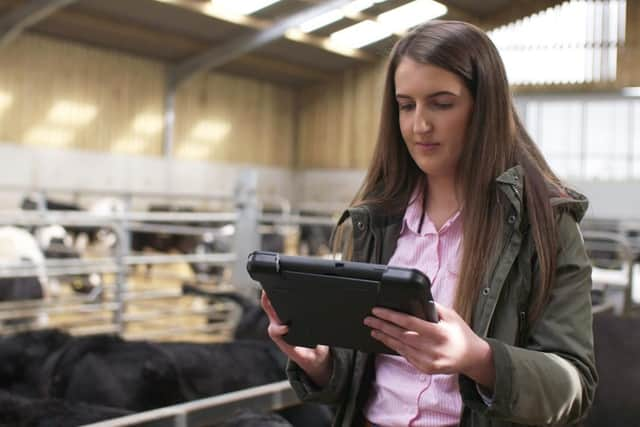

The current output of Northern Ireland’s beef sector at farm level is currently valued at around £450m per annum: we produce just short of 150,000t of beef annually.
Significantly, ABP’s Managing Director in Northern Ireland’s George Mullan believes that the beef sector can retain this levels of output while still meeting its climate change commitments.
He explained: “We now know that the attainment of improved breeding performance, enhanced animal health levels, better grassland management practises and more targeted feeding regimes can help to deliver significant reductions in the beef industry’s carbon footprint.
Advertisement
Advertisement
“Given what we already know now, it will be possible to significantly reduce the time taken to bring cattle through to finished weights. Current estimates indicate that the beef sector can easily secure a 35 to 40% reduction in greenhouse gas emissions within the next decade.”
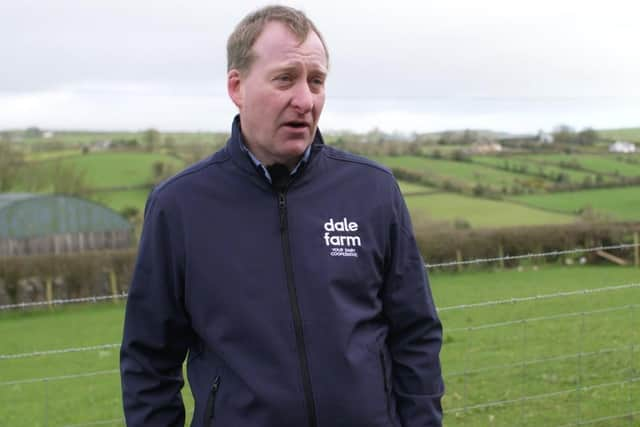

He added:“There is little doubt that additional scientific research will get us the rest of the way in helping to meet Northern Ireland’s carbon net zero commitments over the following decades.”
But George Mullan also made it clear that the beef industry has no alternative but to address the challenge of climate change in a very forthright manner.
He explained:
“Retailers and all those other customers that we deal with have committed to securing these very same net carbon zero targets. And to make this happen requires every facet of the beef production and supply chain to be operating from the same page, where climate action is concerned.
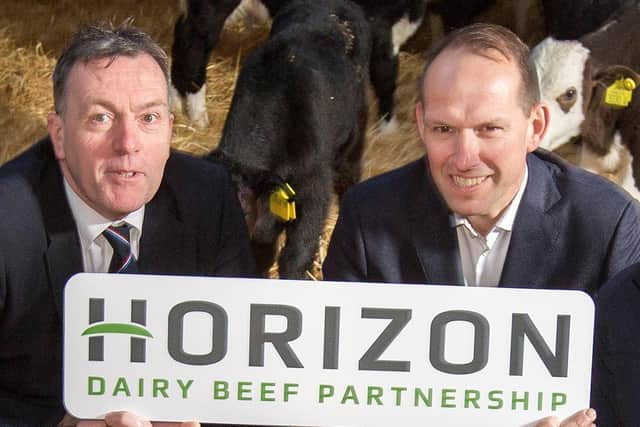

Advertisement
Advertisement
“But the good news for farmers and the economy as a whole is that the beef industry can meet its climate change targets without reducing cattle numbers.”
It is also becoming evident that the beef sector will also seek to fundamentally change the context within which the climate change debate takes place.
ABP’s Agri Sustainability Manager Stephen Connolly takes up that story: “Up to this point far too much emphasis has been placed on cattle’s ability to produce methane.
“The fact is that ruminant livestock have the unique ability to convert grass into high quality protein. For the most part, grassland cannot be ploughed up to produce cereals and other crops.
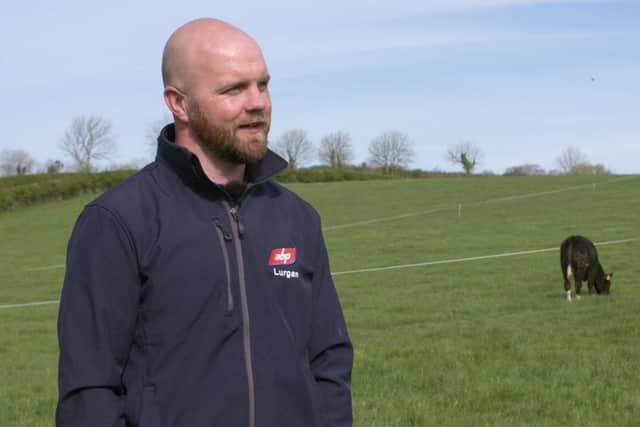

Advertisement
Advertisement
“Pigs and poultry on the other had are simply recycling the dietary protein that is offered to them. We also know that methane does not remain in the atmosphere for lengthy periods of time: contrast this with the fact that carbon dioxide remains in the atmosphere for many years.”
He added:“Consumers must be made more aware of these facts. And it’s the job of the beef industry, as a whole, to get these messages out into the public domain.”
Put simply, Connolly believes that responding to climate change will be a win:win scenario for farmers.
“Securing greater levels of efficiency can reduce production costs by in excess of £100 per finished animal,” he commented.
Advertisement
Advertisement
George Mullan also makes the point that the beef industry’s response to climate change will be driven by science. He continued: “Northern Ireland’s beef sector is already ahead of the world when it comes to delivering on its climate change objectives.
“The most recent independent assessment puts us 60% ahead of our international competitors in this regard. It’s a case of building on this for the future.”
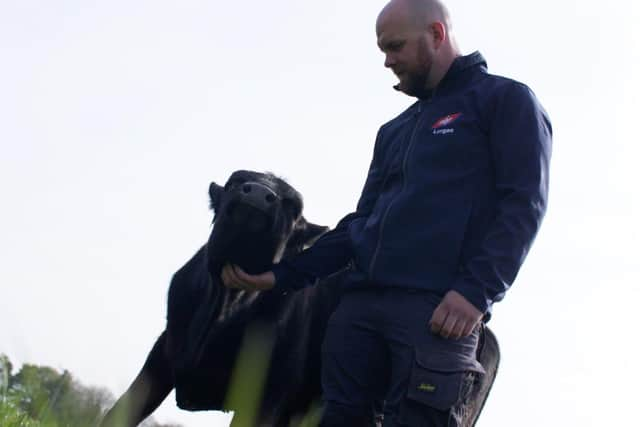

Stephen Connolly agrees: “Independent scientific research and assessment must be the final arbiters when it comes to determining the steps that will be taken by the beef sector in order to comply with its climate change commitments.”
So much for the theory! Significantly, the ABP Group is already committed to working with farmers across Northern Ireland to demonstrate that the beef sector can meet its climate change targets in a very meaningful way. This commitment comes in the shape of the ‘Horizon Programme’, an initiative jointly developed by the beef processor and Dale Farm.
Advertisement
Advertisement
Launched 18 months ago and underpinned by leading genetic research from ABP’s R&D farms across the UK and Ireland, Horizon will seek to respond to the increasing market demand for quality Northern Irish beef, sourced securely, within a shorter supply chain and with a reduced carbon footprint.
ABP and Dale Farm have built Horizon around environmental sustainability, product quality and farm-to-fork traceability, with a support structure provided to all participants to ensure high standards are adhered to. Animals will be bred following strict protocols enabling them to be marketed at 20-21 months, some four months below the UK average. This will ensure a significant reduction of emissions per animal resulting in a more carbon efficient and lower cost of production model overall. Various options are available to participants on the Horizon scheme. Dale Farm members will have the option to breed part of their herd to selected Aberdeen Angus genetics. These calves will be collected by ABP, with a premium paid for achieving desired genetic traits.
Alternatively, Dale Farm or ABP farmers can opt to become a rearing farm for four-week-old calves. ABP will supply calf rearing inputs and provide support to maximise calf performance during the rearing period in terms of health and nutrition.
In return, farmers must adhere to a strict animal welfare and feeding regime. They will receive a management fee per calf plus a bonus for performance targets achieved. The third option focuses on the finishing period. Farmers will be supported with expert input and advice to help achieve better growth rates, improved food conversion, enhanced animal welfare, best practice feeding regimes and grassland management. Finishing farms that follow best practice production efficiencies can achieve improved financial returns.
Advertisement
Advertisement
Neville Graham, Head of Farm Services at Dale Farm, explained the benefits to its members:“Dale Farm is a dairy co-operative, owned by our 1300 farmer members. The business is committed to researching new initiatives which can benefit our members. Developing the Horizon programme with ABP is one such programme which has the potential to add significant value to members beef calves.
“Courtesy of the Horizon programme, we are encouraging members to look holistically at the breeding of their herds to identify cows that could breed to beef bulls using superior genetics to get a better return off farm.
“Calves that are bred from select sires are going to be more efficient and if they are more efficient there is more profit for the farmer and a greater benefit for the environment.”
One of the objectives of Horizon is that of making the livestock better at converting feed to protein, so that they can reach their target weight at an earlier stage and therefore reduce their carbon footprint.
Advertisement
Advertisement
Horizon’s sustainable production system is based on the results of a multi-year research project from ABP’s Demonstration farms in the UK and Ireland. It involves combining, efficient on-farm practices, prescribed rearing protocols and optimum sire selection for dairy beef animals.
So could Horizon be a future blueprint for sustainable dairy to beef production here in Northern Ireland?
ABP’s research in the UK is supported by Harper Adams University. Teagasc and the Irish Cattle Breeding Federation have collaborated with the research in Ireland.
Stephen Connolly commented:“At our Demonstration Farms in Shropshire and in Co. Carlow, ABP has focused on using a data-driven approach to improving the genetics available to the beef herd, so that beef animals optimise their feed conversion ratio and are ready for slaughter at a younger age, thereby significantly reducing their emissions footprint.
Advertisement
Advertisement
“Over 4,000 animals have been involved in the study so far which is supported and verified by independent experts and research institutions.”
He added: “The study has demonstrated that with this data-driven breeding approach a methane emission reduction of up to 40% is achievable and this could have significant positive benefits across UK beef production.
“The research has shown that animals within this same lower age bracket can further a drop in methane emissions by up to 10%, while farmers can improve returns of up to £100 per head, thereby showing economic and environmental sustainability can travel hand in hand.”
George Mullan believes that the Horizon programme is already delivering in a significant manner for the farmers involved. He said: “Horizon is bringing our research work to life and is a great opportunity to significantly reduce emissions through applied data and research. We believe that programmes such as Horizon demonstrate the potential for Northern Ireland meet its climate change needs whilst also protecting and supporting the many thousands of jobs and livelihoods in the rural economy,” he added.
Advertisement
Advertisement
So how are the rearers and finishers reacting to the Horizon programme so farm?
Dairy farmer Barbara Alcorn, from Omagh in Co Tyrone was attracted to the scheme because her dairy calves are collected and delivered to a neighbouring rearing unit rather than having to be transported to market for sale thus reducing transport emissions and exposure to biosecurity risks:
She said: “It’s a farm to farm transfer.”
Barbara was also won over by the Horizon scheme’s environmental credentials which chime with those already practised at her Laurelbank Farm.
Rachel Kee, from Strabane in Co Tyrone, runs a rearing unit where, she says, animal welfare is paramount. Rachel is diligent about feeding and vaccination programmes and keeps records which provide data to aid continual improvement.
Advertisement
Advertisement
The first animals coming through the Horizon initiative are due to reach target weight later this year and throughout the early months of 2022.
Beef finisher Conor O’Neill from Dromore in Co Down is impressed with the progress he has made so far:
He commented: “We would like to get our Aberdeen Angus heifers to 330 kilos and steers to 325 kilos at 21 months.”
Conor believes quality Aberdeen Angus sires and a supported ABP feeding programme are key elements to the system; but it is grass that he sees as the secret to success. He has adopted paddock grazing, silage analysis and grass measuring to enhance production - maximising a natural environmental resource.
Advertisement
Advertisement
Conor is very optimistic about the future. He said: “The scheme is great for the carbon footprint and keeping methane levels down; it’s working well so far, I’m confident in it, very happy.”
Co-ordinating the scheme with the farmers is ABP’s Stuart Cromie. He is encouraged by the quality of the stock coming through.
He confirmed: “Any targets set on rearing or finishing farms have been met.”